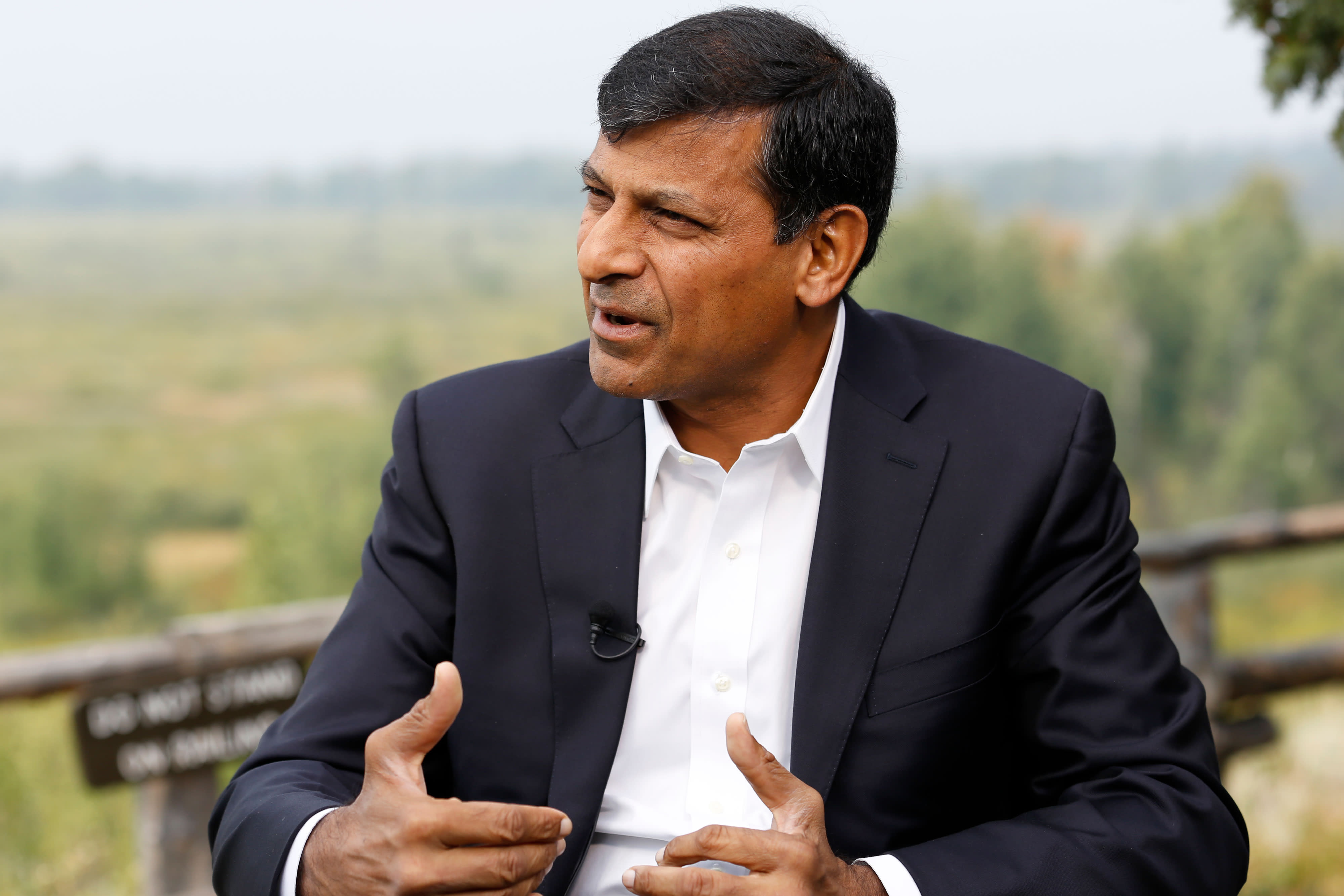
Rajan Raghuram at Jackson Hole, Wyoming August 24, 2018.
David A. Grogan | CNBC
LONDON — The “jury is still out” on negative interest rates as central banks search for ways to shore up the global economy from the long-term effects of the coronavirus pandemic, according to former Reserve Bank of India Governor Raghuram G. Rajan.
Speaking to a CNBC-moderated panel at the World Economic Forum’s (WEF) Jobs Reset Summit, Rajan suggested that central banks, which have already deployed unprecedented monetary stimulus measures since the start of the pandemic, were now willing to tolerate more inflation for brief periods but would need to consider the extent to which various policies help or hurt the economy in the long run.
Interest rates have been cut aggressively by central banks around the world, with many now hovering at or near zero and others crossing over into negative territory, such as the European Central Bank and the Bank of Japan. The Bank of England asked lenders last week for information about their readiness for the possibility of zero or negative interest rates.
“As far as negative interest rates go, the jury is still out. In fact, Sweden came back pretty rapidly from negative interest rates and is not going there again, perhaps because they feel it wasn’t that successful,” Rajan, now Katherine Dusak Miller distinguished service professor of finance at the University of Chicago Booth School of Business, told the panel.
With a second wave of Covid-19 cases sweeping through Europe and the U.S. continuing to contend with rising infections, central banks and governments are now beginning to look at more targeted responses to give their respective economies the firepower to make it through the crisis.
Rajan pointed out that a key shift in focus has been toward ensuring the supply of credit, particularly to the private sector and small and medium-sized enterprises in industries which have been particularly badly affected by the pandemic and associated lockdown measures. However, he argued that they will need to assess which new policies are useful in the long term and which “stand in the way of change.”
“Are we feeding too much debt into the system? Is it time to feed some equity into the system? Is it time to perhaps let some entities close so that their resources can be repurposed elsewhere?” Rajan said.
“These are the questions, after that first wave of support and as the pandemic seems longer lasting, that central banks and the governments that are backing them with some of these credit guarantees will have to ask.”
Rain Newton-Smith, chief economist at the Confederation of British Industry (CBI), told the panel that although monetary policy would now need to be more targeted, fiscal policy will need to do the heavy lifting in this second wave of support.
“Some of the gaps that we saw emerge right at the beginning, which we had to fix, were about how you make loans to businesses that have maybe never ever taken a loan before,” Newton-Smith said.
“Different to how it was in the global financial crisis where the crisis started in the financial sector and rippled to the real economy, here you had a health crisis and the way we needed to address that really had an impact on businesses across all sizes.”
She suggested that during the second wave, fiscal responses would need to be more dynamic and adjustable. Using the examples of similarities between jobs retention schemes in France, Germany and the U.K., she argued that greater shared learning across borders could help the long-term response to the crisis.
Other long-term strategies Newton-Smith said would need to come to the fore would be further emphasis on the transition to a low carbon economy and a different future for energy and mobility, using both public and private finance, along with a renewed focus on competition.
She insisted that it would be vital to ensure that the pandemic response, which relied on traditional financial institutions to “bridge the gap to the other side of the crisis,” would not unintentionally shut the door on competition from the fintech sector and other smaller institutions.




